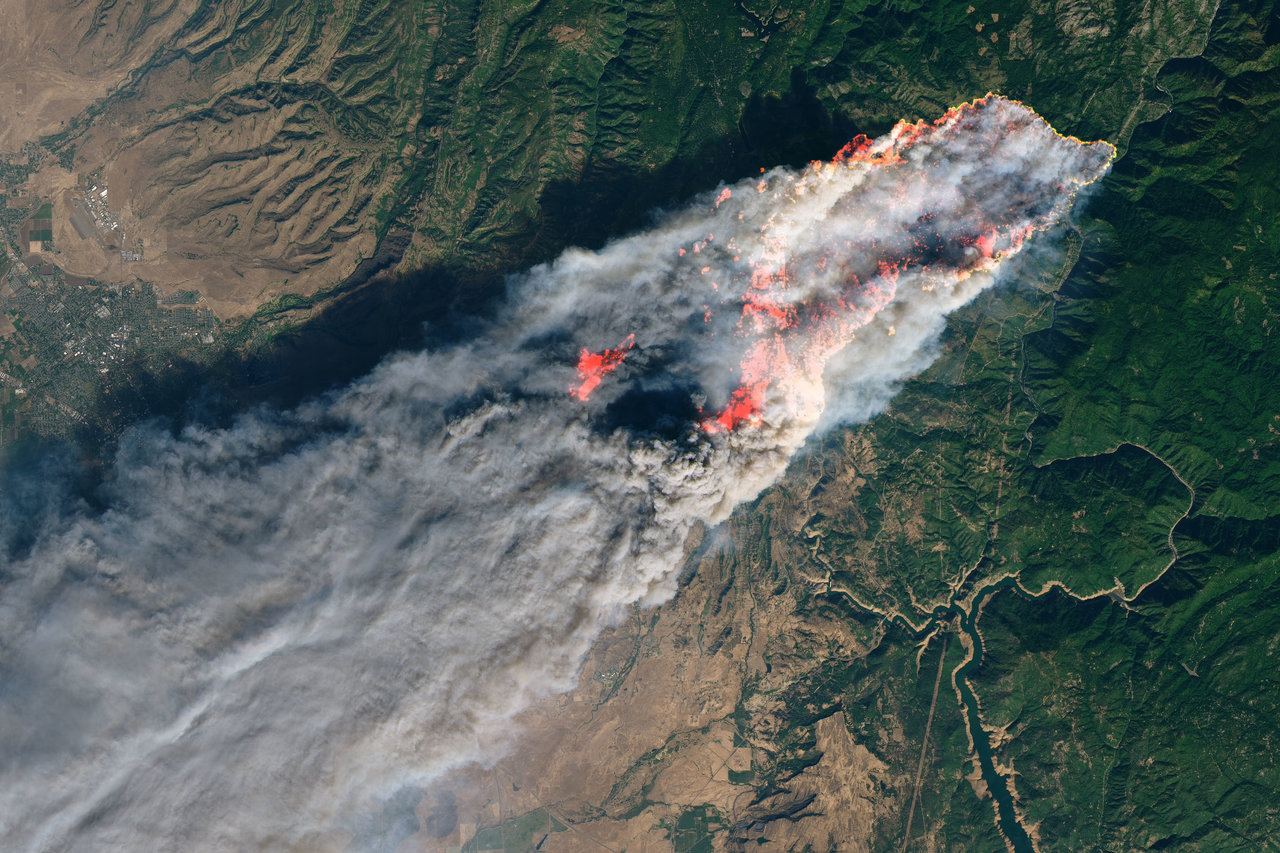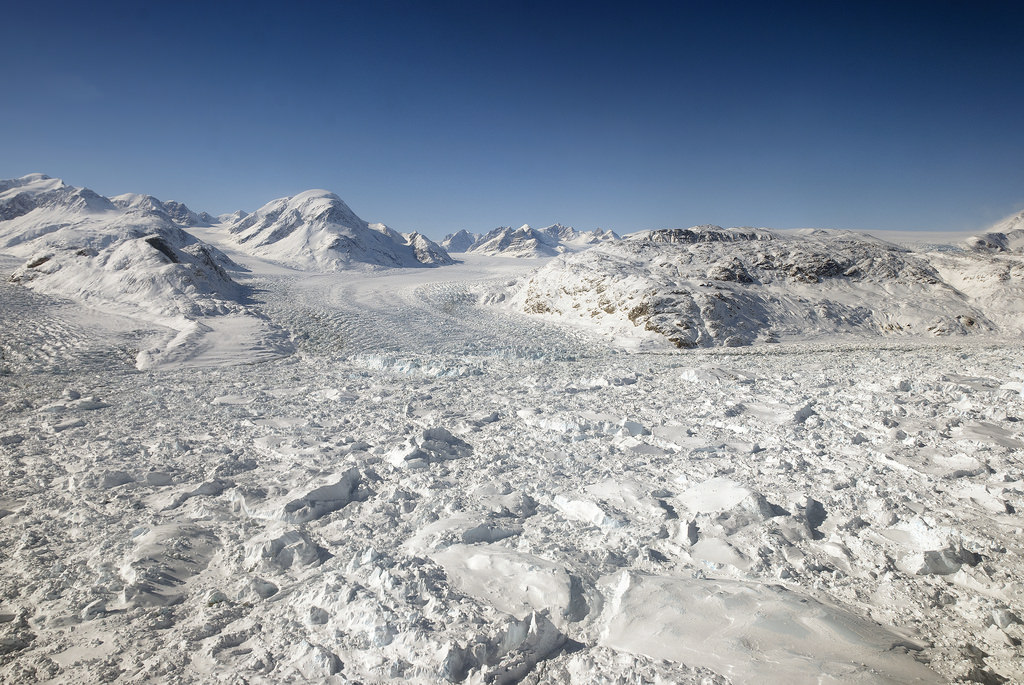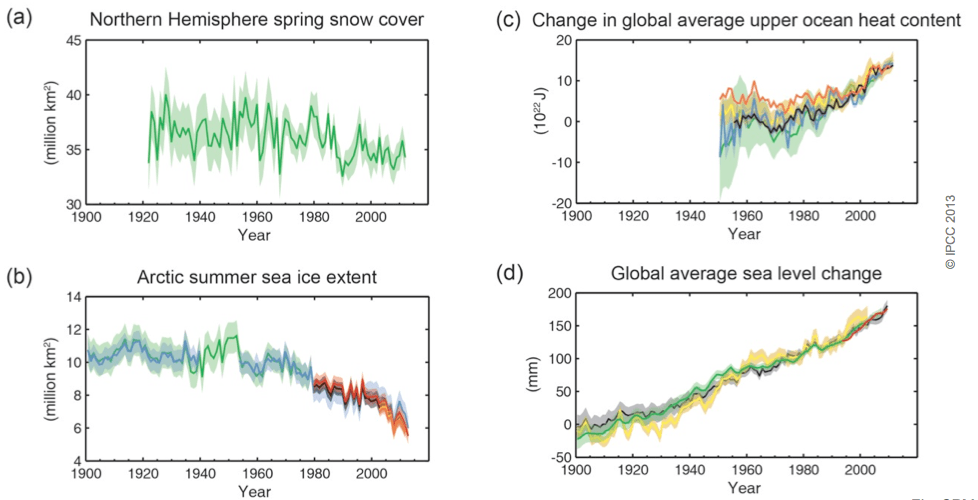Since 1988, the Intergovernmental Panel on Climate Change (IPCC) was formed and tasked with advancing knowledge of humanity’s impact on the natural environment. Beginning in 1990, they have issued multiple reports on the natural, political, and economic impacts Climate Change will have, as well as possible options for mitigation and adaptation. On Feb. 27th, the IPCC released the second part of its Sixth Assessment Report (AR6) – “Impacts, Adaptation, and Vulnerability” – and the outlook isn’t good!
Continue reading “The IPCC Releases its 2022 Report on Climate Change, in Case you Needed Something Else to Worry About”A new Assessment of the World’s Climate is out. The News Isn’t Good
In 2014, the UN Intergovernmental Panel on Climate Change (IPCC) released its Fifth Assessment Report (AR5). As with previous reports, AR5 contained the latest findings of Climate Change experts from all relevant disciplines, as well as projections about the near future. In short, the AR5 and its predecessors were assessments of the impact anthropogenic Climate Change was having on the planet and how we could avoid worst-case scenarios.
On Aug. 9th, 2021, the IPCC released a report titled Climate Change 2021: the Physical Science Basis. Combining the latest advances in climate science and multiple lines of evidence, this first report paints a rather bleak picture of the remainder of the 21st century. At the same time, it presents a call to action and shows how mitigation strategies and reducing greenhouse gas emissions will ensure a better future for all.
Continue reading “A new Assessment of the World’s Climate is out. The News Isn’t Good”Greenland and Antarctica are Losing Their Ice 6 Times Faster than in the 1990s
Why Is Venus So Horrible?
Venus really sucks. It’s as hot as an oven with a dense, poisonous atmosphere. But how did it get that way?
Venus sucks. Seriously, it’s the worst. The global temperature is as hot as an oven, the atmospheric pressure is 90 times Earth, and it rains sulfuric acid. Every part of the surface of Venus would kill you dead in moments.
Let’s push Venus into the Sun and be done with that terrible place. Its proximity is lowering our real estate values and who knows what sort of interstellar monstrosities are going to set up shop there, and be constantly knocking on our door to borrow the mower, or a cup or sugar, or sneak into our yard at night and eat all our dolphins.
You might argue that Venus is worth saving because it’s located within the Solar System’s habitable zone, that special place where water could exist in a liquid state on the surface. But we’re pretty sure it doesn’t have any liquid water. Venus may have been better in the past, clearly it started hanging out with wrong crowd, taking a bad turn down a dark road leading it to its current state of disrepair.
Could Venus have been better in the past? And how did it go so wrong? In many ways, Venus is a twin of the Earth. It’s almost the same size and mass as the Earth, and it’s made up of roughly the same elements. And if you stood on the surface of Venus, in the brief moments before you evacuated your bowels and died horribly, you’d notice the gravity feels pretty similar.
In the ancient past, the Sun was dimmer and cooler than it is now. Cool enough that Venus was much more similar to Earth with rivers, lakes and oceans. NASA’s Pioneer spacecraft probed beneath the planet’s thick clouds and revealed that there was once liquid water on the surface of Venus. And with liquid water, there could have been life on the surface and in those oceans.
Here’s where Venus went wrong. It’s about a third closer to the Sun than Earth, and gets roughly double the solar radiation. The Sun has been slowly heating up over the millions and billions of years. At some point, the planet reached a tipping point, where the water on the surface of Venus completely evaporated into the atmosphere.
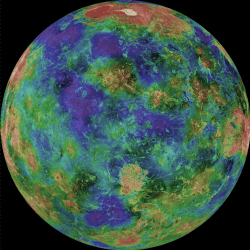
Water vapor is a powerful greenhouse gas, and this only increased the global temperature, creating a runaway greenhouse effect on Venus. The ultraviolet light from the Sun split apart the water vapor into oxygen and hydrogen. The hydrogen was light enough to escape the atmosphere of Venus into space, while the oxygen recombined with carbon to form the thick carbon dioxide atmosphere we see today. Without that hydrogen, Venus’ water is never coming back.
Are you worried about our changing climate doing that here? Don’t panic. The amount of carbon dioxide released into the atmosphere of Venus is incomprehensible. According to the IPCC, the folks studying global warming, human activities have no chance of unleashing runaway global warming. We’ll just have the regular old, really awful global warming. So, it’s okay to panic a bit, but do it in the productive way that results in your driving your car less.
The Sun is still slowly heating up. And in a billion years or so, temperatures here will get hot enough to boil the oceans away. And then, Earth and Venus will be twins again and then we can push them both into the Sun.
I know, I said the words “climate change”. Feel free to have an argument in the comments below, but play nice and bring science.
Sobering IPCC Report: “Warming is Unequivocal”
Climate change is now affecting every continent and ocean says the latest report by the Intergovernmental Panel on Climate Change (IPCC), an international collaboration of more than 2,500 experts. If we don’t act soon to bring greenhouse gas emissions under control, the problems will only grow substantially worse. This isn’t a casual statement from a few fringe scientists: nearly 500 people had to sign off on the exact wording of the summary, including 66 expert authors, 271 officials from 115 countries, and 57 observers.
The report is the second of three installments of the IPCC’s fifth assessment of climate change. The first installment, released last year, covered the physical science of climate change. It stated with certainty that climate change is very real and that we are the cause. The new report focuses on the impacts of climate change and how to adapt to them. The third installment, which will come out in April, will focus on cutting greenhouse emissions.
Ice in the Arctic is collapsing, the oceans are rising, coral reefs are dying, fresh water supplies are diminishing, and the oceans are becoming more acidic, which is killing certain creatures and stunting the growth of others. Heat waves and heavy rains are escalating, food crops are being damaged, disease is spreading, human beings will be displaced due to flooding, animals are migrating toward the poles or going extinct, and the worst is yet to come.
The evidence the world is warming is indubitable.
And yet climate change deniers are still represented the world over. Most notably, the Heartland Institute weighed in on the report by focusing on the benefits of climate change. The group’s take on the matter reads like a crude April Fool’s joke.
A Wall Street Journal op-ed by Matt Ridley has also gained quite a bit of attention. An article in Climate Science Watch refers to his piece as “a laundry list of IPCC misrepresentations.” Ridley fails to cite the data presented in the latest report and even tries to claim that global warming will have net benefits.
From the sweeping opinion articles to the simple comments posted below online articles, the IPCC report is being tragically misinterpreted. One need only take a quick glance at the data to see that the world is warming and catastrophic effects are already occurring.
Climate change is global. It will not only affect the poorest nations but the world. “Nobody on this planet is going to be untouched by the impacts of climate change,” said Rajendra K. Pachauri, chairman of the IPCC in a news conference presenting the report.
Yes this report is sobering. But it also provides an opportunity. We have the power, the intelligence, and the moral duty to protect our home planet. We cannot reverse the damage. We might not even be able to stop it. But we can minimize it. There is still time.
We can act across all scales — local to global — to help reduce greenhouse gas emissions. But first we must learn to adapt to a changing environment. Many governments are well past the state of acknowledging climate change and are in fact starting to find solutions.
“I think that dealing effectively with climate change is just going to be something great nations do,” said Christopher Field, co-chairman of the working group that wrote the report and an earth scientist at the Carnegie Institution for Science in Stanford.
The state of New York recently ordered an electric utility serving Manhattan and its surrounding suburbs, to spend $1 billion upgrading its system to prevent future damage from flooding and other weather disruptions. In a reaction to the blackouts caused by Hurricane Sandy and the acceptance that more extreme weather is to come, the company will raise flood walls, bury vital equipment and determine whether or not emerging climate risks will demand different actions.
Utility regulators across the States are discussing whether to follow New York’s lead.
While greenhouse gas emissions have begun to decline slightly in many countries, including the United States, those gains are being swamped by emissions from other countries such as China and India. We must make greater efforts to adapt or the warming planet will be inevitable.
“There is no question that we live in a world already altered by climate change,” said Field. The time for action is now.
Arctic Melting Is Lasting Longer And Affecting More Ice: Study
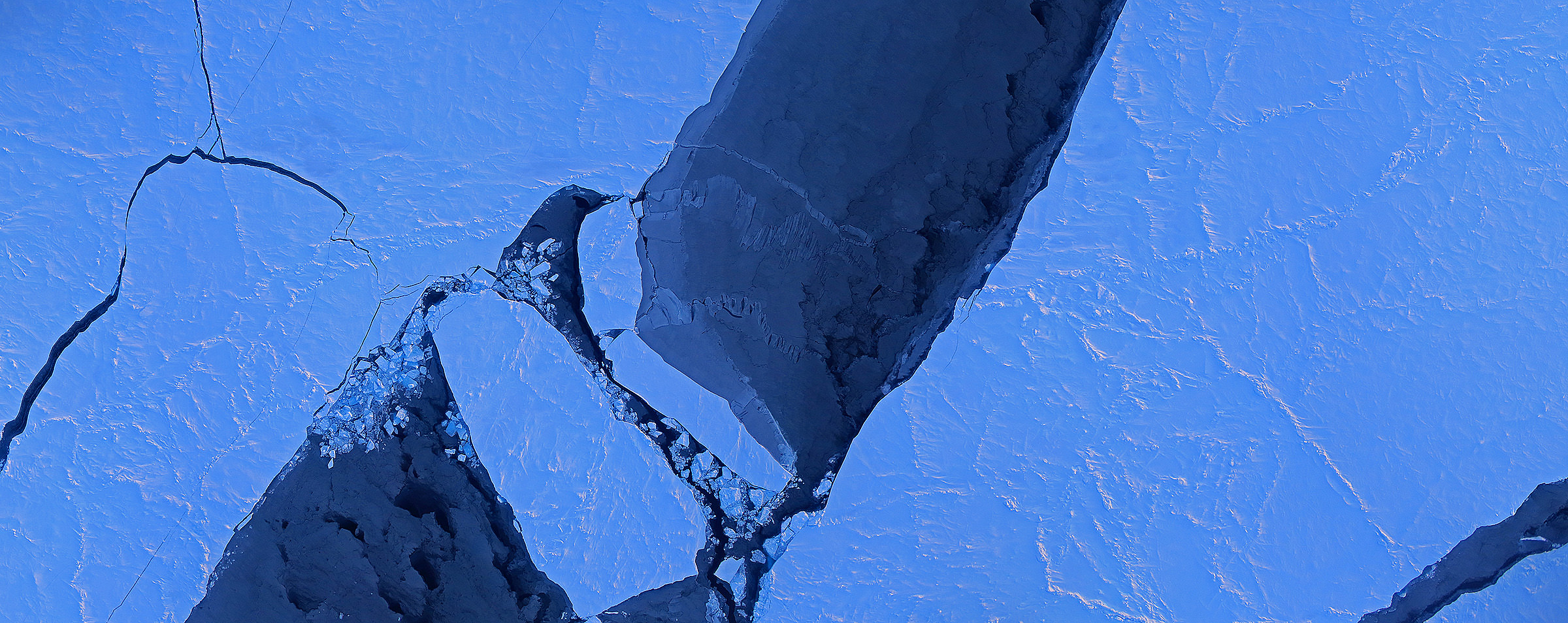
The Arctic melt season is averaging five days longer with each passing decade, a new study by NASA and the National Snow and Ice Data Center reveals. And with more ice-free days, the water (which is darker than the surrounding ice) is absorbing the sun’s heat and accelerating the process. This means the Arctic ice cap has shrank by as much as four feet.
The sobering news comes following a study of satellite data from 1979 to 2013. By the end of this century, scientists believe, there will be a fully melted Arctic Ocean during the entire summer. And the news also comes in the same week that the Intergovernmental Panel on Climate Change (IPCC) released its own report on global warming.
“The Arctic is warming and this is causing the melt season to last longer,” stated Julienne Stroeve, a senior scientist at NSIDC, Boulder and lead author of a new study. “The lengthening of the melt season is allowing for more of the sun’s energy to get stored in the ocean and increase ice melt during the summer, overall weakening the sea ice cover.”
The research further revealed that solar radiation absorption depends on when the melt season begins; this is particularly true since the sun rises higher during the spring, summer and fall than in the winter. It’s still hard to predict when things will melt or freeze, however, since this depends on weather.
“There is a trend for later freeze-up, but we can’t tell whether a particular year is going to have an earlier or later freeze-up,” Stroeve said. “There remains a lot of variability from year to year as to the exact timing of when the ice will reform, making it difficult for industry to plan when to stop operations in the Arctic.”
Data was collected with NASA’s (long deceased) Nimbus-7 Scanning Multichannel Microwave Radiometer and instruments aboard Defense Meteorological Satellite Program spacecraft.
“When ice and snow begin to melt, the presence of water causes spikes in the microwave radiation that the snow grains emit, which these sensors can detect,” NASA stated. “Once the melt season is in full force, the microwave emissivity of the ice and snow stabilizes, and it doesn’t change again until the onset of the freezing season causes another set of spikes.”
The research has been accepted for publication in Geophysical Research Letters.
Source: NASA


